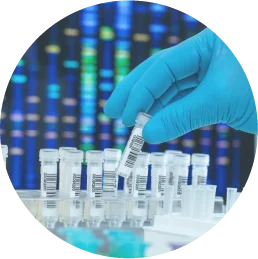Is there any greater gift than good health? Most people can agree on that, but men are much less likely to get life-saving health screenings, putting them at risk for several medical problems—some of which can be deadly. Understanding what health screenings to get, as well as when and how to get them, will put you on the right track to better health. Once you incorporate health screenings into your yearly schedule, you can rest assured that you have taken a critical step toward maintaining your health.
Why Are Health Screenings Important for Men?
Men, in particular, are prone to many of the same medical conditions women are, but there are specific health conditions that only affect men, such as prostate and testicular cancer. Other common conditions include colon cancer, diabetes, heart disease, skin cancer, depression, and high blood pressure.
Screening for cancers, for example, increases the chances of detecting certain cancers early before they have had an opportunity to spread or reach later stages. The longer medical conditions go untreated, the more complicated, invasive, and problematic treatments become. Also, a lack of symptoms doesn’t mean there isn’t a problem.
Health screenings are important for everyone because diseases and medical conditions are part of life. Some conditions are age-related, others are due to family history and genetics, and others are associated with lifestyle factors.
Why Are Men Less Likely to Get Health Screenings?
There are several hypotheses about why men are less likely to get health screenings. A Harris poll conducted in 2022 gives some insights into why men delay or ignore screenings altogether.1
- 65% of men assume they are healthier than they really are (the facts say otherwise:
- 40.5% of men aged 20 and older suffer from obesity, 51.9% of men aged 20 and older have high blood pressure, and men die about five years earlier on average than women).2
- Only three in five men get annual physicals, and nearly half said their health is something they don’t discuss. Men are much more comfortable discussing current events, sports, and jobs.
- Men don’t feel the need to do yearly health screenings.
- Men state they are too busy to go to the doctor.
- Men report being afraid of what medical condition might be discovered once they go to the doctor.
- Men don’t feel like they are sick enough or they ignore symptoms.
- Going to the doctor makes men feel less masculine.
- The exams can be uncomfortable, especially testicular exams, prostate checks, and colon cancer screenings.
- The cost of care is too high.
- About 40% of men get their medical advice from social media rather than from their primary care physician.
It’s worth noting that the women in mens’ lives can significantly influence their health. A survey conducted in 2021 found nearly half of the male respondents to health screenings surveyed admitted that they were persuaded by their significant others to visit a doctor.3
Health Screenings Every Man Should Consider
Age, family medical history, lifestyle, and other risk factors determine what a primary care provider will recommend. Regular visits with a primary care physician are the best step to take to begin a regular routine of preventative screenings. The following are commonly recommended health screenings.
Prostate
The American Cancer Society estimates that more than 260,000 men will develop prostate cancer yearly, and more than 34,000 will die of the disease.4 About 60% of all cases occur in men 65 or older. Only skin cancer is more common than prostate cancer in Black men.
HALO DiagnosticsTM treats prostate cancer at our Houston and California clinics. We use Laser Focal Therapy (focal laser ablation) for the treatment of low-to-intermediate prostate cancer. Laser-focal therapy can also be used to help improve the symptoms associated with benign prostatic hyperplasia (BPH). HALO offers minimally invasive therapies for prostate cancer treatment such as, HIFU, cryotherapy, and TULSA-PRO.
Blood Pressure Screening
Regular blood pressure screening provides detection of pre-hypertension or high blood pressure, which are leading causes of heart issues and stroke. Blood pressure screenings are non-invasive, and lifestyle changes can positively affect high blood pressure if you are opposed to pharmaceutical intervention.
Cholesterol Level Test
Men need regular cholesterol testing beginning at age 35, and those with higher risk factors should start testing as early as age 20. High cholesterol can lead to heart attacks and stroke if not detected early.5
Colorectal Exam
Depending on risk factors such as family history, men should get yearly colorectal exams beginning at age 45. Colonoscopies are recommended every ten years after 50 if there are no signs of cancer or polyps.6
HALO offers virtual colonoscopy, also known as CT colonoscopy because it uses Computed Tomography (CT) scanning to render 2-D and 3-D images of a patient’s colon, which helps doctors look for polyps and other abnormalities and treat them quickly.
Diabetes Screening
Diabetes screenings should be done every three years. High blood pressure and/or high cholesterol may indicate the need for earlier testing.7
Skin Cancer Screening
Skin cancer is one of the top cancers found in men. Annual screenings are not recommended for people who do not have a history of skin cancer or any suspicious moles or other spots. Talk to your doctor about screening for skin cancer if you have a personal or family history with the disease.8
Testicular Cancer Exam
Although there is no standard or routine screening for early detection of testicular cancer, the disease is often found by men themselves during a self-exam. Sometimes, the cancer is found by a doctor during a routine physical exam. If you notice swelling or discomfort in the scrotum, reach out to your primary care physician.9
Mental Health Screening
The bad news is that males are reluctant to talk about their mental health and are more likely to die by suicide than females.10 The good news is that mental health problems like depression and anxiety are highly treatable. Simple screening tools administered by your primary care physician can detect mental health issues and recommend treatment.
Health Screenings Can Save Lives
A sense of invincibility is a common human trait but one that can have devastating consequences for your well-being. This holiday season, embark on a path of renewed focus on your health by gifting yourself regularly scheduled health screenings. You and your loved ones will be glad you did.
References
1 https://www.medicalnewstoday.com/articles/why-do-so-many-men-skip-regular-health-checkups
2 https://www.cdc.gov/nchs/fastats/mens-health.htm
3 https://www.webmd.com/men/news/20210706/men-less-likely-to-see-doctor-study
4 https://www.cancer.org/cancer/prostate-cancer/about/key-statistics.html
6 https://www.healthline.com/health/how-often-should-you-have-a-colonoscopy#who-needs-a-colonoscopy
7 https://jamanetwork.com/journals/jama/fullarticle/2783414
8 https://www.cdc.gov/cancer/skin/basic_info/screening.htm
9 https://www.cancer.gov/types/testicular/patient/testicular-screening-pdq
10 https://www.medicalnewstoday.com/articles/mens-mental-health-man-up-is-not-the-answer




